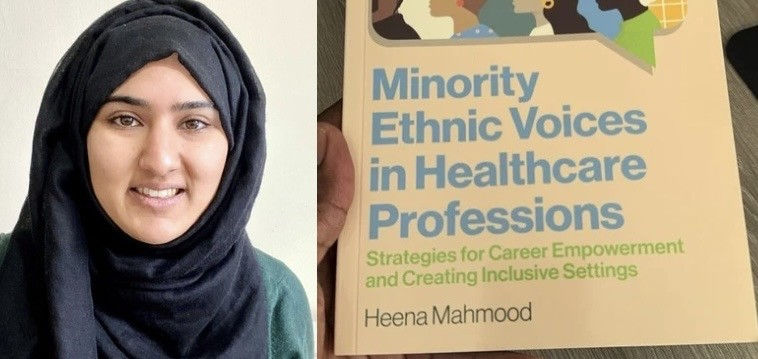
by Heena Mahmood
The NHS is the largest employer of the UK, employing over 1.5 million people, also making it one of the largest in Europe. It is also a diverse organisation, with people of ‘ethnic minority’ background making up 26.7% of its workforce. This is significantly higher than the UK minorities population who make up 18%. There is a higher-than-average representation of people of ethnic background, however issues like racism remain prevalent affecting career progression, mental wellbeing and even self confidence in those affected.
The NHS is also a diverse organisation, with people of ‘ethnic minority’ background making up 26.7% of its workforce.
In my new book ‘Minority Ethnic Voices in Healthcare Professions,’ I explore the racism NHS staff face, as well as the impact this has. Having worked in healthcare for many years, I witnessed some shocking experiences where staff were discriminated against directly because of the colour of their skin, or their faith by both fellow colleagues and members of the public. After hearing such incidences, I felt compelled to speak up about mistreatment my colleagues and I were facing.
When my mum went to school, it was the generation where people of colour were openly targeted, attacked whilst going about their daily business, whether that was school, work, or to the mosque. I thought those days were behind us, however with the increasing shift towards right-wing politics, the race riots of August 2024, and the mountain of evidence showing ethnic colleagues still face higher rates of discrimination – suggests we still have a lot of work to do.
Having worked in healthcare for many years, I witnessed some shocking experiences where staff were discriminated against directly because of the colour of their skin, or their faith by both fellow colleagues and members of the public.So what can be done? The problem is not as easy as one solution will fix everything. As touched on earlier, there are multiple factors that affect and exacerbate the issue. But understanding it is the first step, then the second is working to dismantle it, whether that be the flaws in the system, or the issues we see around us and can speak out to address. Whilst it is a grim and sobering picture, we also see that there are opportunities where individuals have been able to break through ‘glass ceilings’, overcome barriers faced and thrive in environments they have been able to successfully shape and contribute to. In the book, case studies on a variety of individuals are explored, as well as what the reader can do to influence change.
For MWN members, you can use the MWNHM15 at checkout for 15% off here: https://uk.jkp.com/products/minority-ethnic-voices-in-healthcare-professions
Join Our Movement
Raise your voice and get connected

 1
1